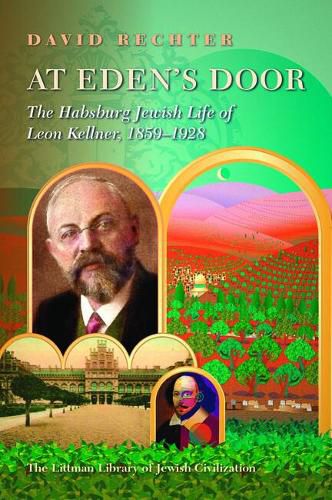Readings Newsletter
Become a Readings Member to make your shopping experience even easier.
Sign in or sign up for free!
You’re not far away from qualifying for FREE standard shipping within Australia
You’ve qualified for FREE standard shipping within Australia
The cart is loading…






Leon Kellner was part of the intellectual and cultural elite of imperial Austria. Engaged in politics, a member of his regional parliament, and an essayist of repute, he was also a Zionist leader and confidant of Theodor Herzl. He created an institution for Jews’ cultural, educational, and social advancement modelled on London’s Toynbee Hall, which spread across east-central Europe to great effect. He was also an internationally recognized Shakespeare scholar. Yet for all this, today he is little known.
How did someone born into a lower-middle-class Orthodox Jewish family from the province of Galicia come to gain such prominence in the Habsburg empire? Kellner’s is a thoroughly Habsburg Jewish story, spanning east and west and shaped by the empire’s history, politics, and culture. He was a singular character: a Galician Jew at home in Vienna and in Czernowitz, eyes towards Zion, yet content also in London, and never more so than when absorbed in the minutiae of Shakespeare’s texts. Kellner’s world was destroyed twice over: Habsburg Austria came to an end in 1918, east-central European Jewry in 1945. This biography recovers at least part of what was lost.
$9.00 standard shipping within Australia
FREE standard shipping within Australia for orders over $100.00
Express & International shipping calculated at checkout
Leon Kellner was part of the intellectual and cultural elite of imperial Austria. Engaged in politics, a member of his regional parliament, and an essayist of repute, he was also a Zionist leader and confidant of Theodor Herzl. He created an institution for Jews’ cultural, educational, and social advancement modelled on London’s Toynbee Hall, which spread across east-central Europe to great effect. He was also an internationally recognized Shakespeare scholar. Yet for all this, today he is little known.
How did someone born into a lower-middle-class Orthodox Jewish family from the province of Galicia come to gain such prominence in the Habsburg empire? Kellner’s is a thoroughly Habsburg Jewish story, spanning east and west and shaped by the empire’s history, politics, and culture. He was a singular character: a Galician Jew at home in Vienna and in Czernowitz, eyes towards Zion, yet content also in London, and never more so than when absorbed in the minutiae of Shakespeare’s texts. Kellner’s world was destroyed twice over: Habsburg Austria came to an end in 1918, east-central European Jewry in 1945. This biography recovers at least part of what was lost.